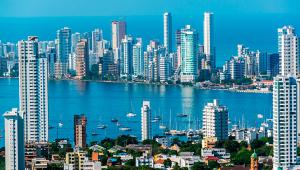ls-us-dollars-iStock_000061545732.jpg

Image by iStock
A report into cities and sub regions by the organisation said that, after strongly declining between 2009 and 2016, SNG investment has started to rebound, reaching 57.6% in 2018.
However, it said that the current coronavirus crisis could lead to a new decline, weakening the economic recovery.
It said: “In several countries, the risk is high, given the contraction of self-financing capacities and increasing deficits.”
The authors warned that it was important to avoid large investment stimulus plans followed by strong fiscal consolidation, “a sequence seen in 2008-10 that undermined public investment for almost a decade”.
Elsewehere in the report, the OECD found that share of public investment made by SNGs is significantly higher in federal countries (62.6% compared to 51.9% in unitary countries).
SNG investment ranges from 80% of public investment in Belgium and Canada, to just 10% in Chile.
SNG investment-to-GDP ratio stood at an average of 1.9% in 2018 (total public investment represented 3.2% of GDP), a ratio that was above 2.5% of GDP in Canada, Japan, Korea and Sweden but below 1% of GDP in Chile, Greece, Ireland, Portugal and the United Kingdom.
Between 2009 and 2018, SNG investment in the OECD area fell each year by 0.3% in real terms in the OECD area, a figure that was 0.7% in the EU.
The report said: “SNG investment contracted sharply in Greece, Spain and particularly in Ireland where it declined on average by approximately 10% annually, in real terms, between 2009 and 2018.”
However, investment by sub-national governments increased in Sweden and Switzerland during the period.
“The deepening of the social and economic crisis and the adoption of budget consolidation measures from 2010 onwards put a severe strain on subnational finance,” the report found.













